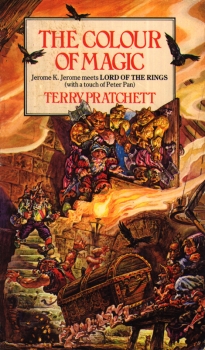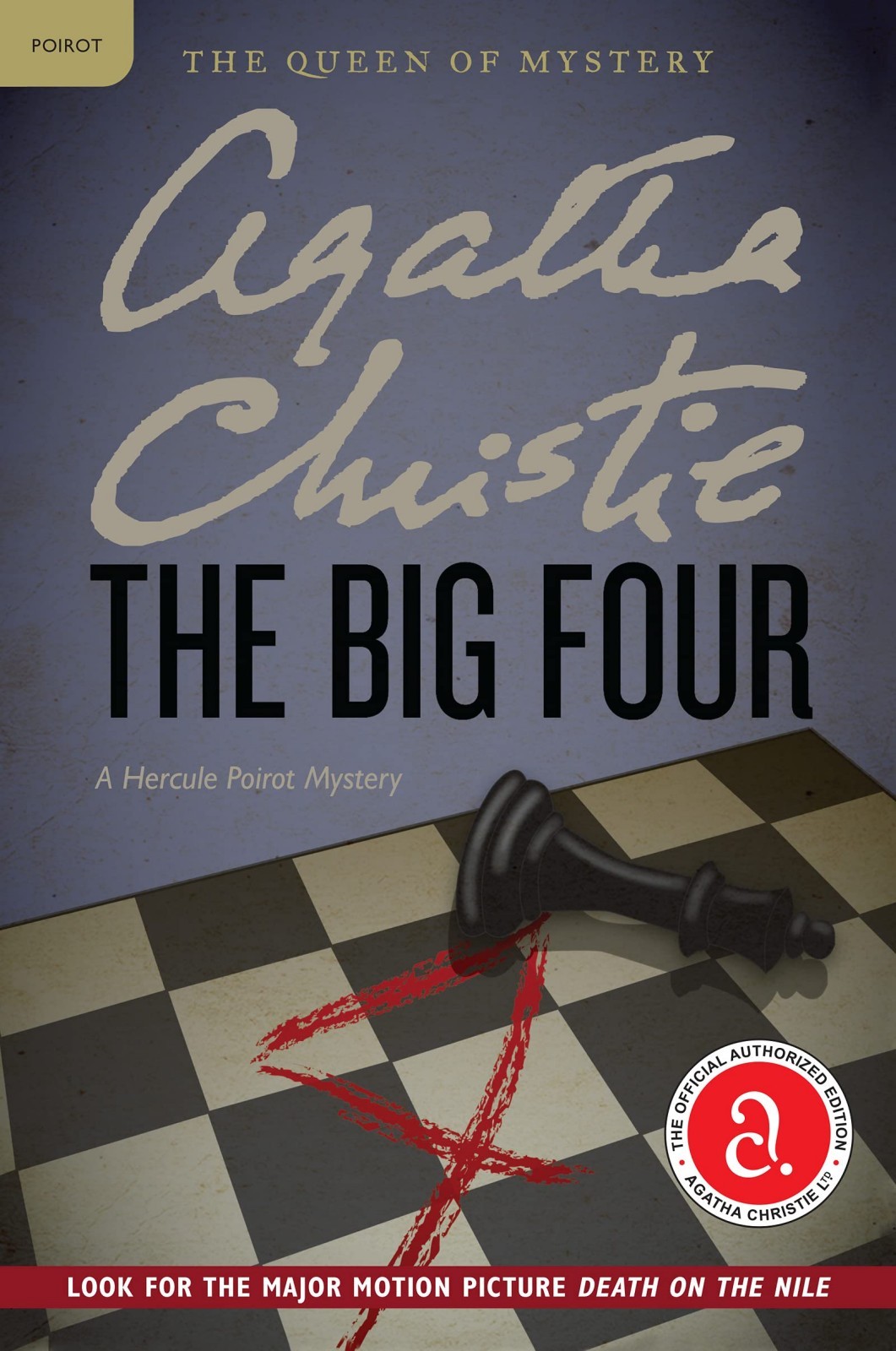The Color of Magic (Discworld, #1; Rincewind, #1)
Title: The Colour of Magic (Discworld, #1; Rincewind, #1)

Author: Terry Pratchett
Published in: 1983
Date read: 21st March 2006
Score: 3/5
Genre: Fantasy, Comedy
Plot: (Warning, may contain spoilers):
"The Colour of Magic" by Terry Pratchett, published in 1983, is the very first novel in the Discworld series, introducing readers to the flat, disc-shaped world carried on the backs of four elephants, who in turn stand on the back of a giant turtle, the Great A'Tuin. This book sets the irreverent, satirical tone for the series and introduces several of its most enduring characters.
The story largely follows Twoflower, the Discworld's very first tourist. Twoflower is an innocent, incredibly naive, and vastly wealthy visitor from the Agatean Empire (a parody of ancient China/Japan). He carries a magical writing implement, speaks a language no one understands (though he believes everyone understands him), and is utterly fascinated by everything he sees, constantly taking "pictures" with his iconograph. His most notable companion is The Luggage, a loyal, sentient, multi-legged chest filled with Twoflower's belongings, which possesses immense power and a terrifyingly protective nature towards its owner, often devouring anyone who threatens him.
Twoflower hires Rincewind, a cowardly, cynical, and spectacularly incompetent wizard from Ankh-Morpork's Unseen University. Rincewind is largely defined by his inability to cast spells effectively (save for one very potent, but never used, spell stuck in his head) and his remarkable talent for running away and surviving against impossible odds. He reluctantly becomes Twoflower's guide and protector.
Their journey quickly devolves into a series of chaotic, near-death adventures across the Discworld. They encounter various mythical creatures, dangerous landscapes, and eccentric inhabitants, including:
• A particularly unhelpful dragon whose existence depends on belief.
• The literal Edge of the Discworld, where the water flows off into space.
• The barbarian lands, where they meet Hrun the Barbarian, a parody of Conan.
• The domain of the gods, playing their cosmic games.
The novel is a direct parody of fantasy tropes, pulp fiction, and Dungeons & Dragons. Its plot is episodic, functioning as a grand tour of the nascent Discworld, showcasing its bizarre physics, its unique magical rules, and its diverse (and often dangerous) inhabitants. "The Colour of Magic" establishes the series' signature wit, its playful deconstruction of fantasy, and its lovable, if hapless, protagonists, laying the groundwork for the more complex and thematic novels to follow.
Comments:
It gives me great pain to have scored this book so low but I really struggled with it and I have heard very similar things back from friends who are also fans. This was the pancake (when you make pancakes, the first one is never as good so you end up throwing it away). It is not awful or even bad, it is just nowhere near as good as books 3 onwards. I am glad that I read Interesting Times first, completely out of order or I may have never know the genuine joy of these books as I could have given up after book 1 or book 2.
Books that we've read by Terry Pratchett (39):
The Colour of Magic (Discworld, #1; Rincewind, #1) (1983), The Light Fantastic (Discworld, #2; Rincewind, #2) (1986), Equal Rites (Discworld, #3; Witches, #1) (1987), Mort (Discworld, #4; Death, #1) (1987), Sourcery (Discworld, #5; Rincewind, #3) (1988), Wyrd Sisters (Discworld, #6; Witches, #2) (1988), Guards! Guards! (Discworld, #8; City Watch, #1) (1989), Pyramids (Discworld, #7) (1989), Eric (Discworld, #9; Rincewind, #4) (1990), Moving Pictures (Discworld, #10; Industrial Revolution, #1) (1990), Witches Abroad (Discworld, #12; Witches, #3) (1991), Reaper Man (Discworld, #11; Death, #2) (1991), Small Gods (Discworld, #13) (1992), Lords and Ladies (Discworld, #14; Witches, #4) (1992), Men at Arms (Discworld, #15; City Watch, #2) (1993), Soul Music (Discworld, #16; Death, #3) (1994), Interesting Times (Discworld, #17; Rincewind, #5) (1994), Maskerade (Discworld, #18; Witches, #5) (1995), Feet of Clay (Discworld, #19; City Watch, #3) (1996), Hogfather (Discworld, #20; Death, #4) (1996), Jingo (Discworld, #21; City Watch, #4) (1997), Carpe Jugulum (Discworld, #23; Witches, #6) (1998), The Last Continent (Discworld, #22; Rincewind, #6) (1998), The Fifth Elephant (Discworld, #24; City Watch, #5) (1999), The Truth (Discworld, #25) (2000), The Last Hero (Discworld, #27; Rincewind, #7) (2001), Thief of Time (Discworld, #26; Death, #5) (2001), Night Watch (Discworld, #29; City Watch, #6) (2002), The Wee Free Men (Discworld, #30; Tiffany Aching, #1) (2003), Monstrous Regiment (Discworld, #31; Industrial Revolution, #3) (2003), A Hat Full of Sky (Discworld, #32; Tiffany Aching, #2) (2004), Going Postal (Discworld, #33; Moist von Lipwig, #1) (2004), Thud! (Discworld, #34; City Watch, #7) (2005), Wintersmith (Discworld, #35; Tiffany Aching, #3) (2006), Making Money (Discworld, #36; Moist Von Lipwig, #2) (2007), Unseen Academicals (Discworld, #37; Rincewind, #8) (2009), I Shall Wear Midnight (Discworld, #38; Tiffany Aching, #4) (2010), Snuff (Discworld, #39; City Watch, #8) (2011), Raising Steam (Discworld, #40; Moist von Lipwig, #3) (2013)
This page was updated on: 7th August 2025

